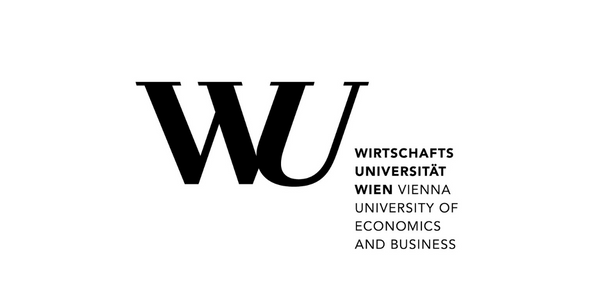Research in Austria
Opportunities for foreign researchers in Austria

Which opportunities do I have as a foreign researcher in Austria? © Elektro / photocase.de
Investments in Research and Development in Austria have increased significantly in recent years. With its active research landscape, a dynamic and innovative economy and high quality of life, Austria is an attractive destination for international researchers and their families.
Updated: 2024-11-05
Significance of research in Austria
Research and Development (R&D) in Austria has doubled its R&D ratio since 1994 (from 1.5 per cent in 1994, to 3.8 per cent in 2017). As such, Austria has become an increasingly attractive research location within Europe. In 2017, research expenditures totalled 11.3 billion euros (2017 global estimate), with the federal government investing 3.4 billion euros.
In the past few years, Austria has caught up with European ‘innovation leaders’ such as Finland and Sweden. Globally, Austria ranks number eleven in the European Innovation Scoreboard 2018. Austria’s R&D intensity (R&D expenditures as a percentage of GDP) is in second place behind Sweden (3.26 per cent). Austria is also one of the few European countries to have exceeded the European Union’s research policy objective to achieve a research ratio of 3 per cent of GDP by 2020.
Further promising signs of Austria’s growing R&D scene are the increasing numbers of scientific publications and patent registrations and the ever-increasing collaborations between science and business.
Gross Domestic Expenditure on Research and Development (GERD) in Austria by financing sectors 2014 - 2018
| Year | Gross R&D Expenditure | Federal Government | Länder Governments | Business Enterprise | Abroad |
|---|---|---|---|---|---|
|
2014 |
10,275.18 |
3,086.03 |
461.59 |
4,901.28 |
1,663.95 |
|
2015 |
10,499.15 |
3,036.19 |
344.97 |
5,222.22 |
1,737.69 |
|
2016 |
11,133.23 |
3,353.01 |
445.78 |
5,385.03 |
1,782.17 |
|
2017 |
11,679.31 |
3,418.41 |
498.78 |
5,719.15 |
1,865.93 |
|
2018 |
12,336.88 |
3,559.29 |
525.76 |
6,110.68 |
1,953.63 |
Most important research fields and sectors
Austria has a long history in science, social sciences and humanities, which dates to the beginning of the last century. For example, the natural, technical and life sciences are especially well-established areas of research in both the public and private research sectors.
Growing sectors include those of precision medicine, artificial intelligence, autonomous driving, alternative drive systems and lightweight construction all of which supplement the traditionally strong sectors such as machine, vehicle and plant construction and industrial goods.
The highest shares of the federal research and research promotion investments in 2018 were made in the following categories:
- Promotion of the general advancement of knowledge: 31.1 per cent
- Promotion of industrial production and industry: 24.6 per cent
- Promotion of health: 21.2 per cent
Research and experimental development (R&D) investments by types of research 2015
| R&D Investment (in 1000 euro) | in % | |
|---|---|---|
|
Basic Research |
1,851,982 |
17.9 |
|
Applied Research |
3,264,315 |
35.1 |
|
Experimental Development |
4,853,943 |
47.0 |
Which institutions carry out research in Austria?
Research in Austria is very diverse, with research taking place at a number of different institutions. More than 71,000 people (full time/full-time equivalent throughout the year) conduct research at Austria’s 22 public universities, 13 private universities and 21 Universities of Applied Sciences (Fachhochschulen), or for 2,000 enterprises like BMW, Bosch, Infineon and Novartis all with headquarters in Austria.
Universities and the business sector are the biggest research performers and are responsible for basic research and scientific training. There are also 65 other research institutes and academies alongside universities, which employ around 7,000 employees and focus largely on the application of knowledge. This is the fastest growing field in Austria’s research landscape, with R&D investments almost tripling over the past ten years. There are also more than 60 industrial clusters of more than 7,000 companies with over 800,000 employees which conduct an average of 7.5 per cent of all research in Austria.
R&D personnel and R&D expenditure 2015 by sector
| Sector | R&D Performing Institutes | Expenditures on R&D in 1000 euro | R&D personnel |
|---|---|---|---|
|
Higher Education |
1,265 |
2,468.207 |
17,682.1 |
|
Government |
250 |
481,113 |
2,673.5 |
|
Private, non-profit |
55 |
51,338 |
506.6 |
|
Business enterprise |
3,611 |
7,498.488 |
50,533.7 |
Research and Development in Austrian industry
Thanks to generous research premiums, research companies can claim 14 percent of their R&D expenditures for tax purposes as of 1 January 2018. Austria also offers other attractive tax benefits. For example, there is an immigration allowance (Zuzugsfreibetrag) for scientists and researchers, which covers 30 percent of research income and can be used for up to five years. An apprenticeship allowance (Lehrlingsfreibetrag), the ability to carry forward losses, the ability to transfer hidden reserves and a corporate tax rate of 25 percent are also among the tax benefits for companies.
It’s no wonder then, that the business enterprise sector’s share of Austria’s R&D expenditure is very high, at around 48.2 per cent (compared to 36.0 per cent contributed by the public sector) and is the largest source of funding. In 2017, approximately 230 million euros in research premiums was distributed to companies. This amounts to an estimated funding volume of 5.5 billion euros or around 1.5 per cent of Austria’s R&D gross domestic product for 2017.
Top Austrian companies according to R&D investments, 2017
| Net turnover, in million euros | R&D expenditure % of turnover | |
|---|---|---|
|
ams AG |
549.90 |
25.20 |
|
Infineon Technologies Austria AG |
1,839.50 |
22.39 |
|
Frequentis AG |
252.20 |
17.01 |
|
Boehringer Ingelheim RCV GmbH & Co KG |
1,209.70 |
16.53 |
|
Bernecker + Rainer Industrie Elektronik GmbH |
600.00 |
11.83 |
|
Trumpf Maschinen Austria GmbH & Co. KG |
229.92 |
11.33 |
|
AVL List GmbH |
1,400.00 |
10.00 |
|
Anton Paar GmbH |
282.00 |
9.86 |
|
Kapsch Group Beteiligungs GmbH |
1,046.80 |
9.38 |
|
Epcos OHG |
287.60 |
8.34 |
Working as a foreign researcher in Austria
Since Austria is a relatively small country, knowledge capital is crucial. As such, international cooperation and competition are seen as real strengths in Austria’s scientific institutions. At present, some 300 employees at 20 institutes and 5 clusters deal with the latest scientific issues and carry out top-level international research work and this looks set to increase in the coming years.
Austria is an attractive location for science and research for foreign researchers due to its many interesting job opportunities, central European location, high quality of life, social security and modern infrastructure. A strong export industry, top international companies and organisations, over 400 market leaders and an innovative research scene all combine to offer attractive career prospects for talented international researchers.
Researchers who come from non-EU countries normally need an entry visa. You can find the regulations for working in Austria in the Austrian Act Governing the Employment of Foreign Nationals(Ausländerbeschäftigungsgesetz – AuslBG).
Austrian research grants
Three federal ministries are responsible for the Austrian research and technology policy: the Ministry of Science and Research (Bundesministerium für Wissenschaft und Forschung, BMFW), the Ministry for Transport, Innovation and Technology (Bundesministerium für Verkehr, Innovation und Technologie, BMVIT), and the Ministry of Economy, Family and Youth (Bundesministerium für Wirtschaft, Familie und Jugend, BMWFJ). The Austrian Science Fund (Fonds zur Förderung der Wissenschaftlichen Forschung, FWF), the Austrian Research Promotion Agency (Forschungsförderungsgesellschaft, FFG) and the Austria Wirtschaftsservice (AWS) are the main agencies that manage the funding for basic and applied research, development and innovation on behalf of the ministries.
The Austrian Research Promotion Agency (FFG) is the national funding agency for industrial research and development in Austria. This "one-stop shop" promotes R&D via research grants, supports application-oriented, business-oriented research and gives Austrian businesses and research facilities access to research funding. The FFG and Austria Wirtschaftsservice (AWS), the funding bank for corporate business development, support research companies with direct grant programmes, counselling and services. As a development bank, the AWS supports entrepreneurs and established companies with loans, grants, and guarantees or investments/equity capital.
Other sources of funding are: the COMET (Competence Centers for Excellent Technologies) initiative, which promotes the cooperation between companies and scientific facilities, the Christian Doppler Research Association, which sets up public sector-financed research units at Austrian universities and the Wittgenstein Prize, featuring annual prize money of up to 1.5 million euros, which is the most highly endowed science award of the Republic of Austria.








